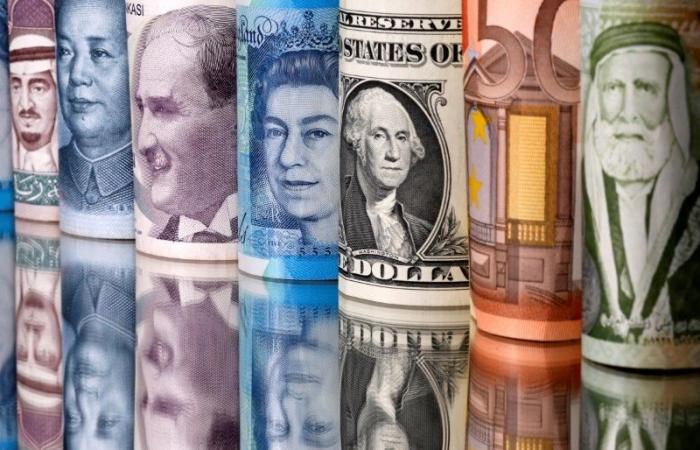© Reuters
Investing.com – Pension funds and other “non-bank” financial firms have more than $80 trillion in hidden off-balance-sheet dollar debt in foreign exchange swaps, the Bank for International Settlements (BIS) said.
The Bank for International Settlements, which has been called the central bank for the world’s central banks, said in its latest quarterly report that the market turbulence in 2022 has been largely bypassed without major problems.
blind spot
Having repeatedly urged central banks to act aggressively to curb inflation, they struck a measured tone and weathered UK bond market woes and turmoil in September.
Its main warning was about what it described as a “blind spot” for foreign exchange debt that risked leaving policymakers in “the fog”.
The foreign exchange swap markets, where a Dutch pension fund or a Japanese insurance company for example borrows dollars and lends yen before paying it back at a later date, also has a history of problems.
And they saw financing strains during the global financial crisis and again in March 2020 when the COVID-19 pandemic wreaked havoc that required central banks like the US Federal Reserve to step in with swap lines.
Hidden debts
The Bank for International Settlements said estimates of “hidden” debt of more than $80 trillion exceed dollar stocks, repurchases and commercial paper combined. It has grown from just over $55 trillion a decade ago, while forex swap deals were nearly $5 trillion a day in April, two-thirds of daily forex trading volume.
As for both non-US banks and non-US “non-banks” such as pension funds, the dollar liabilities from forex swaps are now twice their dollar debts on the balance sheet.
“Lost dollar debt from forex/forward and currency swaps is huge,” the Swiss-based firm said, adding that the lack of first-hand information about the size and location of problems was the main issue.
How far should central banks go?
BIS officials have been vocally calling for aggressive rate hikes from central banks as inflation holds, but this time it has taken a measured tone.
Asked if the end of the tightening cycle is in sight next year, Claudio Borio, head of monetary and economics at the Bank for International Settlements, said it will depend on how conditions evolve, also pointing to the complexities of high debt levels and uncertainty about how sensitive borrowers are now. for high rates.
The crisis that erupted in UK markets in September also confirmed that central banks may have to step in – in the UK’s case by buying bonds even as they were raising interest rates to curb inflation.
“The simple answer is that the answer is closer than it was initially, but we don’t know how far central banks should go,” Borio said of interest rates.
“The enemy is an old and well-known enemy,” he added, referring to inflation. “But it’s been a long time since we’ve had this fight.”
decentralization
The report also focused on the findings of the Bank for International Settlements’ recent global foreign exchange market survey, which estimated that $2.2 trillion worth of currency deals are at risk of failing to settle on any given day due to problems between counterparties, which could undermine financial stability.
The amount at risk represents about a third of the total available forex trading volume and is more than $1.9 trillion higher than three years earlier when the last forex survey was conducted.
According to her, FX trading also continues to shift away from multilateral trading platforms towards “less obvious” places that prevent policy makers from “appropriately monitoring currency markets”.
Cryptocurrency market crises
Meanwhile, the bank’s Head of Research and Economic Adviser, Hyun Sung Shin, described recent cryptocurrency market problems such as the collapse of the FTX exchange and stablecoins, TerraUSD and Luna, as having similar characteristics to bank mishaps.
He described many of the cryptocurrencies he sold as “DINO – decentralized in name only” and that most of his related activities were done through traditional intermediaries.
“These are people who mainly take deposits in unregulated banks,” Shen said, adding that it is very much a matter of unbundling the high leverage and maturity mismatch, just as it did during the financial crash more than a decade ago.
Tags: World Central warns disappearance trillion dollars Powered Investing .com


